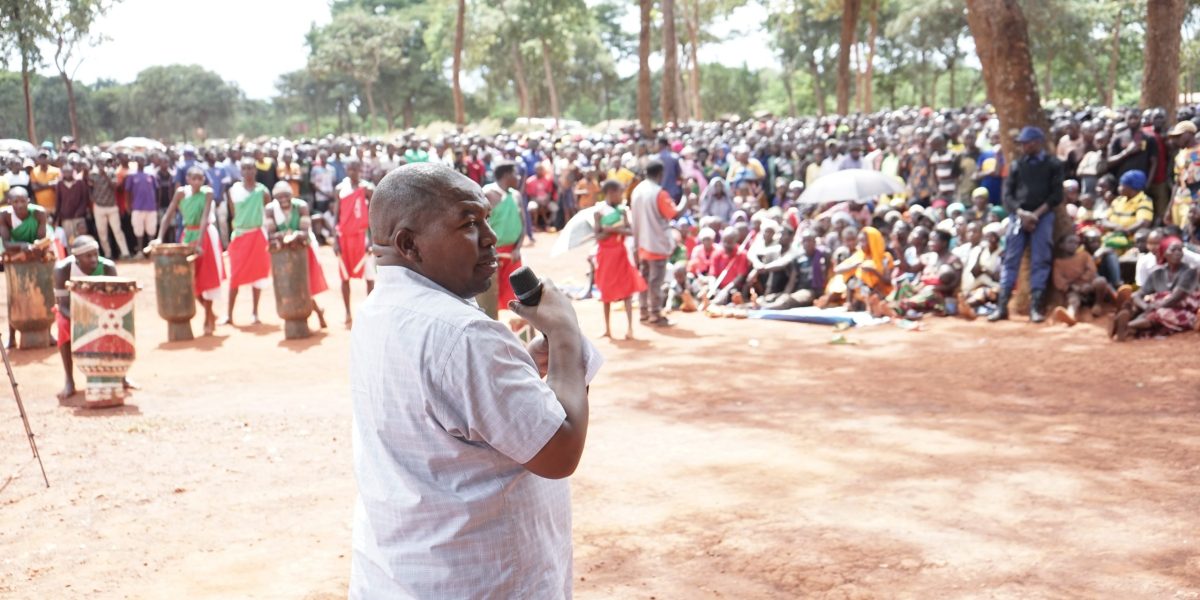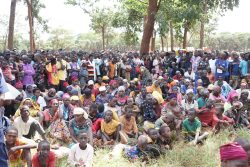Voluntary Return for Burundian Refugees.
26 February 2026|Rodrigue Murerwa

Since 2015, political unrest and insecurity have forced hundreds of thousands of Burundians to seek refuge in neighboring countries. Today, Tanzania hosts one of the largest Burundian refugee populations, with many living in Nduta and Nyarugusu refugee camps.
For nearly a decade, life in displacement has been defined by resilience, but also by uncertainty. Many refugees remain torn between fears of returning home and the daily struggles of camp life, including dwindling resources, shrinking humanitarian aid, and limited opportunities for self-reliance.
With regional stability gradually improving, the conversation around voluntary, safe, and dignified return has taken center stage.
From April 21st to 26th, 2025, a joint delegation from the Governments of Burundi and Tanzania, supported by UNHCR, JRS, HELPage, and IRC, visited Nduta and Nyarugusu camps with one primary goal: to listen, inform, and open dialogue about voluntary repatriation.
Led by the Permanent Secretary of the Burundian Ministry of Interior, the mission engaged with: Camp authorities, Local Tanzanian leaders, And most critically, the refugees themselves
The delegation delivered a clear and consistent message “Returning home is your choice. But if you decide to go, you will not walk alone.”
 The Burundian officials presented updates on the security situation across all regions of Burundi, while also outlining available reintegration programs, including, Return kits with basic supplies, Access to support services and Community reintegration opportunities
The Burundian officials presented updates on the security situation across all regions of Burundi, while also outlining available reintegration programs, including, Return kits with basic supplies, Access to support services and Community reintegration opportunities
At the same time, Tanzanian authorities voiced concerns about the increasing pressures of managing refugee camps amidst declining humanitarian funding. They emphasized the need for durable, long-term solutions that benefit both refugees and host communities.
Perhaps the most compelling moments of the mission came from returnees who shared personal testimonies. Their stories highlighted real-life reintegration successes, Finding jobs and supporting their families, Joining local associations and contributing to community development and Reclaiming dignity and purpose in their hometowns
The mission successfully rekindled trust and strengthened communication between refugees, governments, and humanitarian partners. But it also illuminated the challenges that remain. Voluntary repatriation cannot succeed without, Ongoing security monitoring and protection guarantees, Sustainable reintegration support including livelihoods, education, and healthcare and Addressing the root causes of displacement to prevent future cycles of flight
For now, the joint mission has opened a path forward for those ready to consider returning home. As one refugee elder poignantly said during the dialogue
“We have lived here long enough to know survival, but now, we must ask ourselves if it is time to start living again.”


